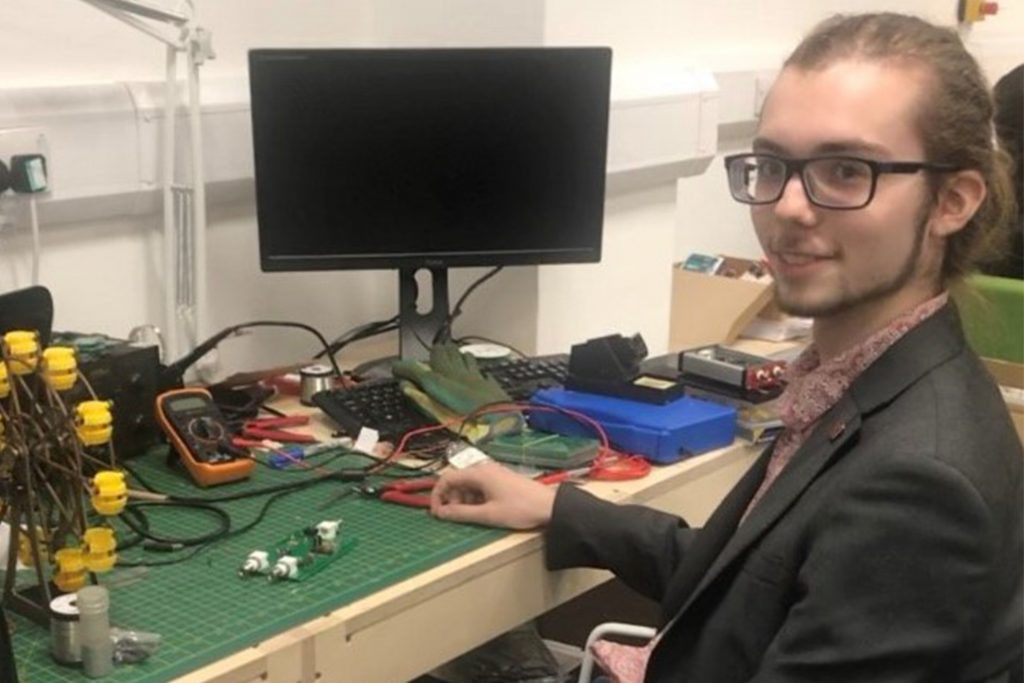We met up with second year BEng Electronic Engineering student, Ivan Holmes, to find out about his experience at Salford.
Hi Ivan, can you tell us why you decided to study Electronic Engineering?
I really like electronics and I spent a lot of my spare time doing it; so, when I realised it was something that I could study at university, it was an obvious choice.
What is your favourite thing about the course?
I’m more interested in the digital electronics side of electronic engineering: the control systems, the way it all interacts and the ability to control electrons – in a figurative sense. It’s an amazingly fulfilling feeling when you create a system and find that everything is performing correctly.
How is your course structured?
There is a blend of lectures and practical sessions. For modules which cross over with other courses, we’ll be in a large lecture theatre; for others, like Digital Electronics, only our group attends and there is usually a practical element. Modules such as Computer Interfacing are taught solely through a three-hour practical session every week. You go, write code, and learn as you go which is nice because it can’t be learnt in a lecture: unless you use it, you wouldn’t remember it.
Not everything can be assessed by an examination since we wouldn’t have access to any of the resources and it doesn’t prove that you can actually do it. Certain modules, however, are more theoretical. Digital Electronics, for example, has a strong assignment-based practical element, but there is also the theory which has been developed since the 1940s and advanced as electronics has progressed – we start with the basics, otherwise we have nowhere to build from.
Do you have any advice for prospective students who are considering studying Electronic Engineering at Salford?
To be successful at electronics, you must have a clear idea of what it is, really like it, and have an intuitive kind of grasp of it.

Is independent learning an important factor of your course?
Yes. We all have the same grounding from the course but from there we go into separate projects. As with anything, there will be areas of electronics you are interested in more than others and you will explore them in your own time.
The whole point of our group design project, for example, is to create something that others wouldn’t be able to do because they haven’t done that research. So, I suppose it is quite an individual course with a lot of opportunity for self-expression, which isn’t what you’d expect from engineering. Electronics is more of an art because there is a grey area in between the right and wrong answers. It is creative in that you are able to plan out what you do want to do, how, and in what way.
Why would you recommend the University of Salford to others?
I love it. At Salford, you learn the theory whilst doing the practical side of electronics. We’re using the same software for digital electronics as large companies so you come out of university with experience; a future employer may use a different manufacturer, but you will have used something similar meaning you’re able to learn it quicker than if you’d done a purely theoretical degree.
The campus is great, Peel Park is really nice, the accommodation and facilities are good. What other campus university is in the city? We’re closer to Manchester than most other students in the city. I mean, what’s not to like?
Become unstoppable with a degree at Salford.